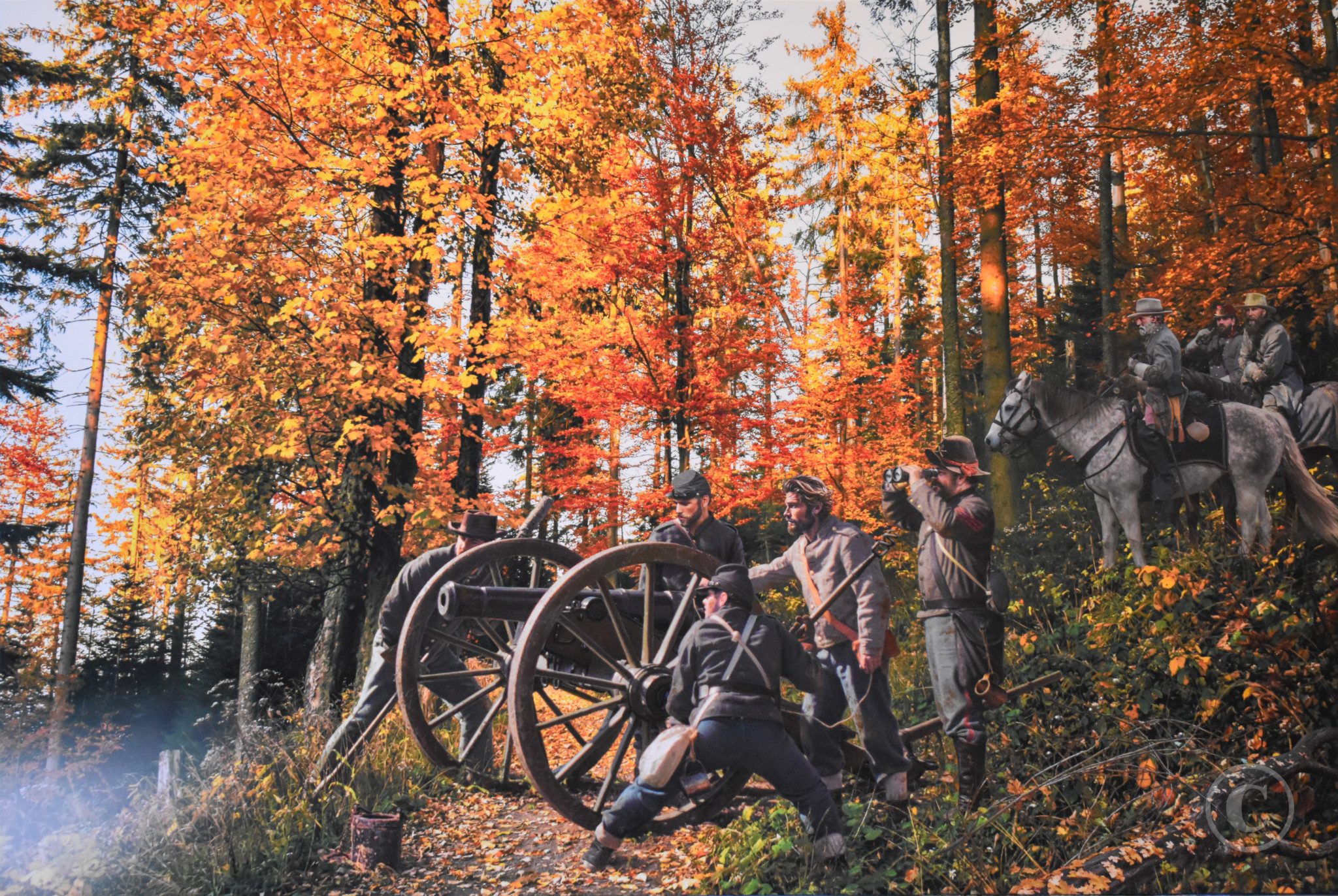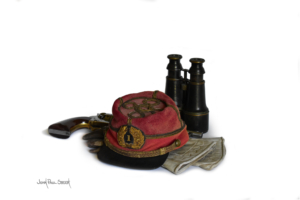MARYE’S HEIGHTSGenerals R.E. Lee, James Longstreet & Lt. Colonel E.P. AlexanderFredericksburg, Virginia - November 21, 1862 
As the November trees began to shed their autumn colors on Marye’s Heights, General Robert E. Lee and James Longstreet looked across the town of Fredericksburg and down upon the Union Army gathering on the opposite banks of the Rappahannock River. The sight must have been daunting, as General Ambrose Burnside’s Army of the Potomac numbered over 122,000 men, and were clearly preparing for an attack. General Lee had ordered his Army of Northern Virginia to Fredericksburg. Lee’s plan to counter the impending Union attack was based on a strong defensive strategy. Lee would position his army on the high ground of Marye’s Heights and along a ridge from Prospect Hill to the north. Some of his men also commanded good defensive positions in the town. Lee’s plan was also to place a great number of artillery batteries atop these ridges making them virtually impenetrable. General Lee’s left flank at Marye’s Heights would be commanded by General Longstreet, while the right flank along Prospect Hill would be commanded by Stonewall Jackson when he arrived from Winchester. On the 21st of November, General Burnside sent a formal communication to the mayor of Fredericksburg demanding the town surrender. The note claimed his men had been fired upon by soldiers from within the town and any further resistance would result in the shelling of the city. The mayor passed along the note to General Lee, who decided the town needed to be evacuated. Around midday General Burnside ordered Union artillery to open fire on Fredericksburg. Confederate batteries on Marye’s Heights and surrounding ridges responded with return fire. General Lee, Longstreet and Lt. Colonel Edward Porter Alexander rode to the heights to observe the Union bombardment firsthand to determine if it signaled an all out imminent attack. This is when General Lee made his famous remark: “It is well that war is so terrible - we should grow too fond of it.” Soon the artillery fire became a duel between artillery batteries lasting about four hours. Lee ordered his artillery to conserve ammunition for the battle to come. This action was the first major hostile action in the area. As the rest of Lee’s army arrived, southern positions were reinforced and infantry dug fighting trenches. By the time the Union army attacked, Marye’s Heights would have 47 cannons in position, and Porter Alexander was promoted to full colonel on December 5th commanding their operation. Below the heights was Longstreet’s Georgia Infantry Brigade positioned behind a long stone fence, providing a perfect barrier against an assault. During the Battle of Fredericksburg on December 13, 1862 General Burnside ordered a total of fourteen separate frontal assaults against Marye’s Heights. All these charges were meant to break the Confederate line at the stone wall, but all were cut down with horrific casualties. Over 6,000 Union soldiers fell at Marye’s Heights proving it to be impenetrable. Colonel Alexander said afterward: “It was not a battle, it was a slaughter.” That night with wounded soldiers still on the battlefield, the northern lights shone in the sky. Many confederates who had never seen the northern lights took it as a sign that God himself was celebrating a southern victory. The northern troops saw the lights as the souls of their departed comrades rising to heaven. Archival Paper Giclées
Canvas Giclées
|


